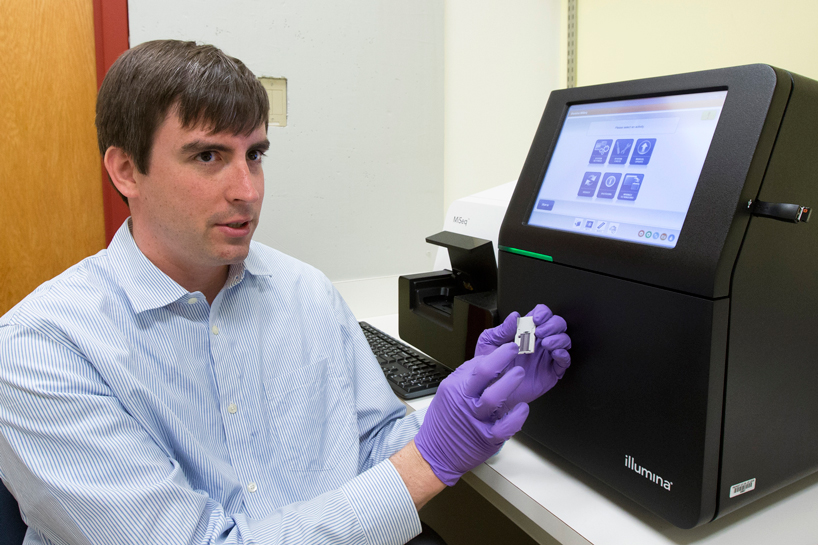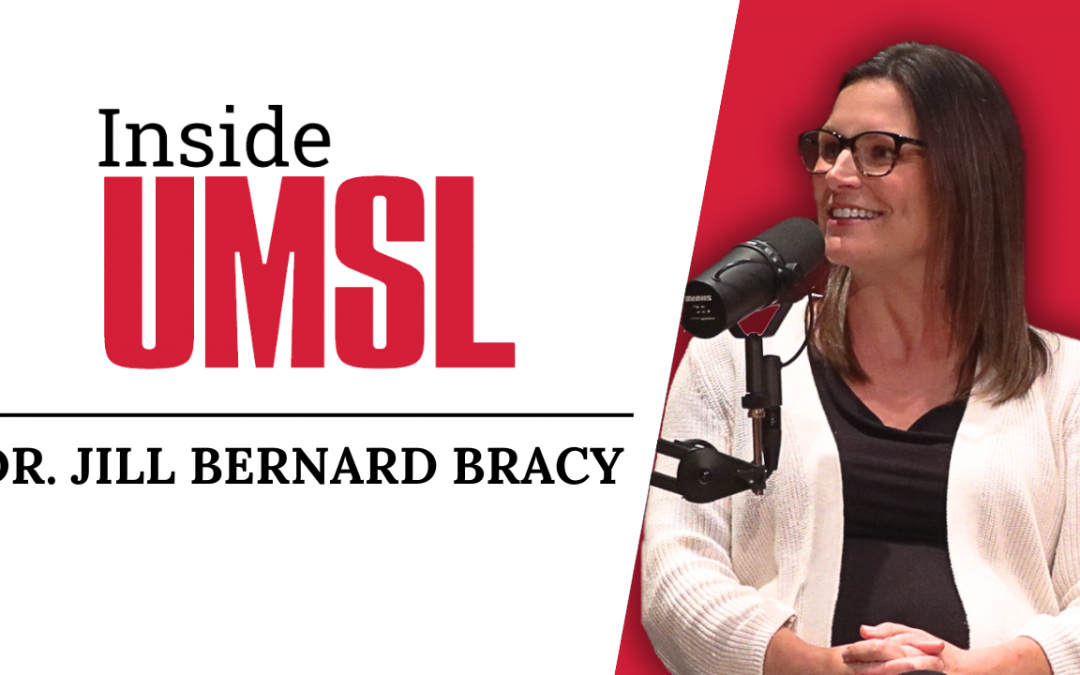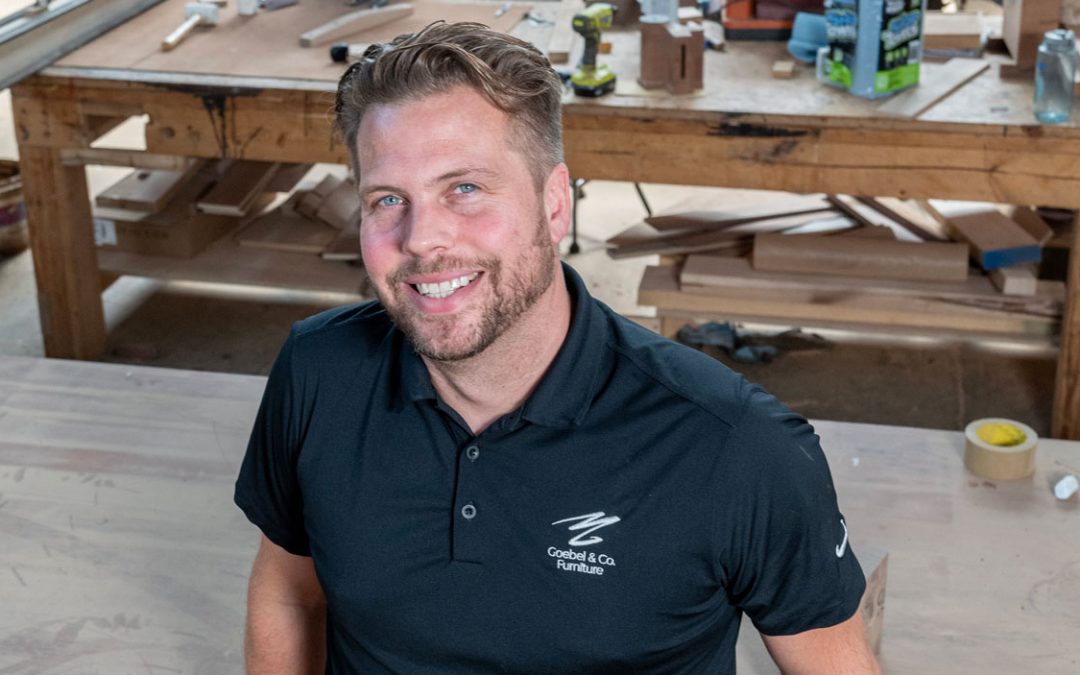
Michael Hughes, assistant professor of biology at UMSL, is the administrator of the next-generation sequencer (pictured), an instrument that rapidly sequences molecules like RNA and DNA. (Photo by August Jennewein)
The words “cool” and “big deal” dominate the conversation when Michael Hughes discusses a new piece of cutting-edge equipment recently acquired by the Department of Biology at the University of Missouri–St. Louis.
Hughes, assistant professor of biology at UMSL, is the administrator of the next-generation sequencer, an instrument that rapidly sequences molecules like RNA and DNA.
“It analyzes 25 million short nucleotide sequences in less than 24 hours,” he said. “I think it’s a really big deal that a department of our size has this technology here.“
Hughes said the device allows him and other researchers to do experiments that they weren’t able to previously do. One of the big advantages is that instead of looking at whether one gene has changed or a few genes have changed the machine sequences every single molecule in the sample.
“We’re not just interested in one gene or 10 genes, we want to know about every single gene,” he explained.
Hughes notes that the new machinery is not only attractive to prospective students but also serves to attract outstanding faculty members.
“That we have something this new and this cool, and we’re making it available to graduate students is a really big deal and an opportunity for them,” Hughes said, adding that it’s a pretty unusual occurrence.
He said he’s excited that his lab is “starting to crank out data.”
This fall, for the first time, Hughes will teach a course utilizing the next-generation sequencer. It’ll be offered to PhD students. Enrollment is already under way. Hughes expects to have about eight students.
“To a large extent people look at these sorts of things as mysterious and it’s not. What I want to accomplish in this course is to demystify the entire process. This is something we can do at UMSL, and that we are doing.”
UMSL acquired the next-generation sequencer at the end of last summer. The machine costs around $120,000. Additional support equipment needed to process samples costs roughly another $30,000. Funding came from a Peabody Energy gift.
“The equipment is necessary to serve the new Environmental Sciences Laboratory course for which a teaching laboratory is being renovated, also covered by the Peabody gift,” said Patricia Parker, the E. Desmond Lee Professor in Zoological Studies and chair of the Department of Biology at UMSL.
She said the device not only makes it possible for the department to offer state-of-the-art courses to students, but it serves the research mission of the department. Parker said most disciplines within biology are shifting to focus on genome-wide perspectives, which is now expected in most federally funded programs.
“It makes our research better directly, but it also gives us access to sources of funding for which we would otherwise not be as competitive,” she said.















